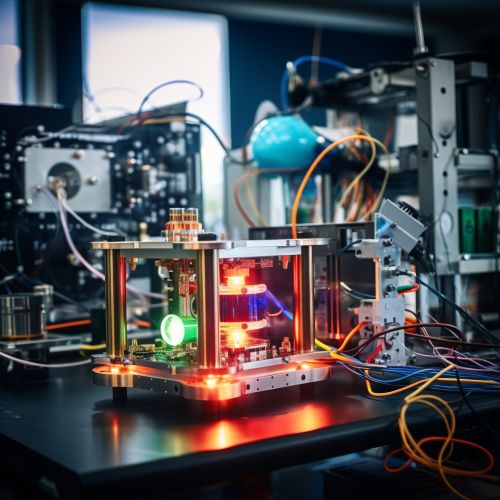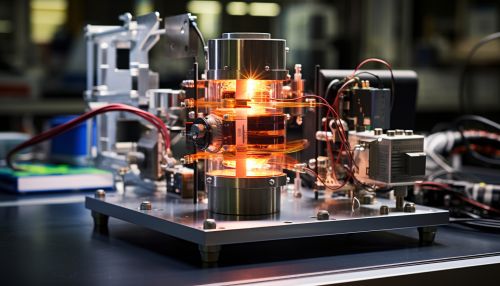Advances in Quantum Computing with Quantum Repeaters
Introduction
Quantum computing is a rapidly evolving field that leverages the principles of quantum mechanics to perform computations. One of the significant advancements in this field is the development of quantum repeaters, which are essential for long-distance quantum communication. This article delves into the intricacies of quantum repeaters and their role in advancing quantum computing.


Quantum Computing: A Brief Overview
Quantum computing is a type of computation that uses quantum bits, or qubits, instead of the traditional binary bits used in classical computing. Qubits can exist in multiple states simultaneously, a property known as superposition. This property, along with entanglement, where qubits become interconnected and the state of one can instantly affect the state of another, regardless of distance, allows quantum computers to process vast amounts of data simultaneously.
Quantum Repeaters: The Basics
Quantum repeaters are devices that help extend the distance over which quantum information can be reliably transmitted. They are a critical component in quantum communication networks, particularly in quantum key distribution (QKD) systems. Quantum repeaters work by reducing the rate of information loss, which typically increases with the length of the transmission medium.
Working Principle of Quantum Repeaters
Quantum repeaters operate based on the principles of quantum entanglement and quantum teleportation. They use a process called entanglement swapping to extend the range of entanglement between qubits. In a typical setup, a quantum repeater would have two qubits in an entangled state. When a qubit from a sender is entangled with one of the repeater's qubits, the repeater performs a Bell state measurement, effectively entangling the sender's qubit with the repeater's other qubit. This process can be repeated with additional repeaters to extend the range of entanglement further.
Role of Quantum Repeaters in Quantum Computing
Quantum repeaters play a crucial role in quantum computing by enabling long-distance quantum communication. They are essential for the development of quantum networks, which are networks that use quantum signals for communication. Quantum networks have the potential to revolutionize many areas, including secure communication, distributed quantum computing, and quantum sensor networks.
Advances in Quantum Repeaters
Significant advances have been made in the field of quantum repeaters. These advances are primarily focused on improving the efficiency and reliability of quantum repeaters. For instance, researchers have developed techniques to improve the fidelity of entanglement swapping, which is crucial for the operation of quantum repeaters. Additionally, advances in quantum memory technologies have enabled the storage of quantum states, which is necessary for the operation of quantum repeaters.
Future Prospects
The field of quantum repeaters is still in its infancy, and there is much room for improvement and innovation. Future research in this area is expected to focus on improving the efficiency, reliability, and scalability of quantum repeaters. This research will be crucial for the development of large-scale quantum networks.
